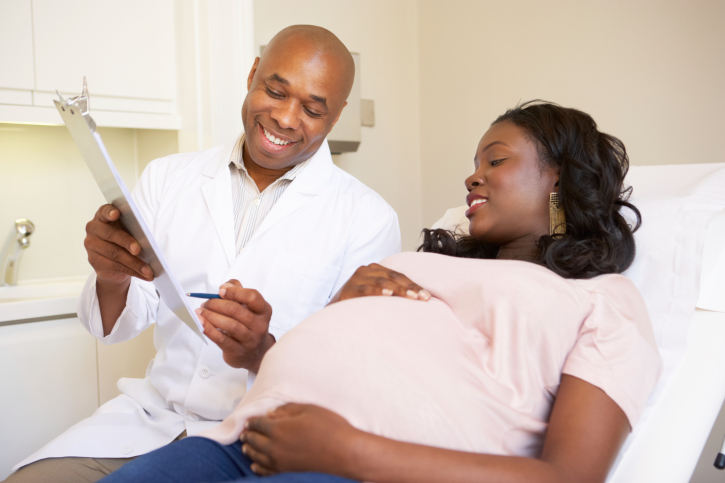 As a mother, you will spend the rest of your life worrying about the health and needs of others. Make sure that you're getting everything YOU need and not putting your health on the back burner in the process. All women should have the following tests and exams, but these are especially important for mothers-to-be, who are living, breathing and eating for two (or more!).
As a mother, you will spend the rest of your life worrying about the health and needs of others. Make sure that you're getting everything YOU need and not putting your health on the back burner in the process. All women should have the following tests and exams, but these are especially important for mothers-to-be, who are living, breathing and eating for two (or more!).
1. Fasting Blood-Sugar Test
This test screens for diabetes by measuring the sugar in your blood after an eight-hour fast. Most women should be tested every one to two years after age 40, however, women with high risk factors such as high blood pressure, a family history of diabetes or are overweight should be tested sooner at age 30. African Americans are twice as likely to develop diabetes, automatically putting African-American women in a high risk category. Research also shows that gestational diabetes - diabetes developed during pregnancy in previously non-diabetic women - may be 50 to 80 percent more likely in pregnant black women.
2. Dental Exam
A periodontal exam includes a thorough cleaning of your teeth and examination of your gums. Your dentist will look for inflammation around your gums and any signs of possible infection. "Hormone changes seem to cause your gums to become more inflamed, although we're not really...
... sure why," says Kimberly Harms, a dentist and a consumer adviser for the American Dental Association. The risk of premature birth increases seven times in women who have gum disease. Exams are suggested every six months, but if you are experiencing bleeding gums (a major red red), you should see your dentist every three to four months.
3. Skin Examination
A visual examination of your skin - your body's largest organ - should be performed by your dermatologist or primary physician to look for signs of skin cancer. Although the melanin in black skin helps protect us from the sun and we have lower incidences of skin cancer, it is still a possibility. According to the American Academy of Dermatology, the most common cancer among women 25 to 29 is malignant melanoma (skin cancer). Dr. Lisa Corum, a family physician states, "Women also experience a lot of skin-pigmentation changes during and after pregnancy. Most of them are absolutely harmless, but it's something you definitely want a physician to look at." Have your skin examined each year at your annual check up.
READ: 5 Health Benefits Of Working Out While Pregnant
4. Thyroid Stimulating Hormone (TSH) Test
This is a blood test that screens for hypothyroid (underactive thyroid) and hyperthyroid (overactive thyroid). Ideally, your thyroid hormone levels should be normal, but according to Dana Simpler, M.D., pregnancy and postpartum depression after pregnancy can bring on these conditions. This test is particularly important for women during the family planning stage who want to become pregnant since a thyroid disorder may halt ovulation and increases your risk of miscarriage or premature delivery. Beyond family planning, women should have this test annually.
5. Bone Mineral Density Test
This test specifically checks for osteoporosis, a disease that occurs when the bones become weak and thin. Osteoporosis affects 8 million women in the U.S. and risk factors include a family history of osteoporosis, thyroid medication and steroids used to treat eczema and asthma (which disproportionately affects African Americans). "All of these medications accelerate bone loss," says Melba Ovalle, M.D., director of Osteoporosis Centers of America in Chicago and Orlando. Calcium deficiency during lactation can also accelerate bone loss. If a bone density test reveals bone thinning (osteopenia), your doctor may suggest being tested more often. Otherwise, being screened again when you reach menopause should be sufficient.
Visit the BlackDoctor.org Healthy Pregnancy center for more helpful articles and tips.









